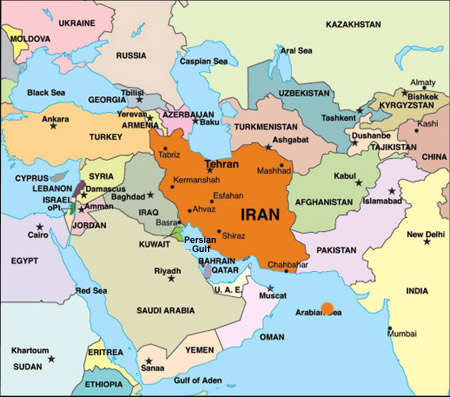Washington D.C.
A federal grand jury returned an indictment last week charged a Canadian national with the unlawful export of laboratory equipment from the United States to Iran, through Canada and the United Arab Emirates (UAE), officials stated.
According to court documents, Reza Sarhangpour Kafrani, aka Reza Sarhang, 46, an Iranian national residing in Montreal, was indicted by a grand jury on one count of conspiracy, two counts of violations of the International Emergency Economic Powers Act (IEEPA), one count of causing a failure to submit export information and six counts of money laundering.
According to the indictment, Kafrani and a co-conspirator co-owned Prolife Global, Ltd., which was based in Canada, but conducted business in the U.S. and elsewhere.

In November 2015, Kafrani began negotiating with a U.S. company to purchase mass spectrometry equipment for import to Canada.
During those negotiations, Kafrani initially inquired about costs to ship and install the equipment in Montreal, Canada.
Later, however, Kafrani asked a representative of the company if the installation costs were the same for the Middle East, and the representative of the company emailed Kafrani, saying, “You know there are sanctions in place for Iran.” Kafrani was unable to purchase the equipment from this company.
As alleged in the indictment, he then began negotiations with a second U.S. company for the purchase of similar mass spectrometry equipment in March 2016.
Ultimately, he and a co-conspirator were able to purchase three mass spectrometers and an autosampler, used to automatically load samples into the mass spectrometer, for a total of approximately $110,739.
Chromatography and spectrometry analytical instruments, such as some of the laboratory equipment purchased by Kafrani, are controlled for nuclear nonproliferation reasons and therefore require a license to be exported from the United States to either Iran or the UAE.

Specifically, a license is required from the Department of Commerce’s Bureau of Industry and Security (BIS) to export such items to the UAE, while a license is required from the Department of the Treasury, Office of Foreign Assets Control (OFAC), to export to Iran.
The remaining laboratory equipment purchased by Kafrani may not be exported to Iran without a license from OFAC. Kafrani and his co-conspirator applied for an export license from OFAC on Nov. 16, 2015.
Again April 23, 2016, but OFAC declined to grant either application. Kafrani’s co-conspirator applied for a license from BIS on March 28, 2016, but that application was returned without action by BIS because OFAC is responsible for administering the U.S. sanctions against Iran.
On Aug. 24, 2016, Kafrani and his co-conspirator directed the second U.S. company to ship one mass spectrometer to Canada, and then coordinated with a Canadian shipping company to reexport it to the UAE on Sept. 7, 2016. From there, they arranged for a UAE-based shipping company to reexport the item to Iran on Sept. 25, 2016.
In September 2016, Kafrani and his co-conspirator arranged for a Canada-based shipping company to pick up two more mass spectrometers and an autosampler directly from the second U.S. company, transport the items to Canada and then reexport them to the UAE Kafrani then hired a UAE-based transport company to reexport the items to Iran on Oct. 11, 2016.
Kafrani never told the second U.S. company that the items were ultimately destined for Iran, causing the firm to fail to file the legally required electronic export information.
Kafrani also made, or caused to be made, six separate money transfers from bank accounts in Canada and elsewhere to bank accounts in the United States with the intent to promote the unlawful exports to Iran described above.
Charges of conspiracy and failing to submit export information carry a statutory maximum of five years in prison.
Violations of the IEEPA and money laundering charges carry a statutory maximum of 20 years in prison.
The defendants are presumed innocent unless proven guilty.

